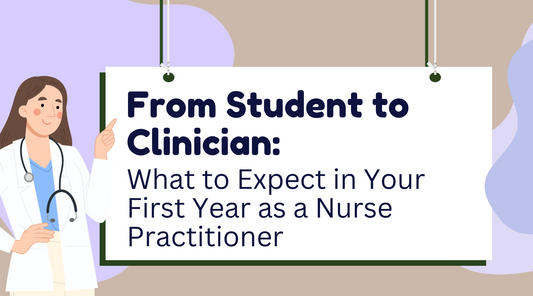Becoming a Nurse Practitioner (NP) is both an exciting and rewarding journey. NPs are integral members of the healthcare system, providing advanced care and often serving as primary healthcare providers. However, the path to becoming an NP involves significant dedication, education, and specific qualifications. Whether you're considering the traditional MSN path or the increasingly popular Direct Entry MSN option, it's important to understand the steps required. This guide will explore the essential education, licensure, certification, specialization, and professional development necessary to pursue a successful career as a nurse practitioner.
Education and Licensure Requirements
The journey to becoming a Nurse Practitioner begins with foundational education and licensure.
-
Bachelor of Science in Nursing (BSN):
- Typically takes four years to complete.
- Provides a strong base in nursing theory, clinical skills, and patient care.
- Accredited programs ensure eligibility to take the NCLEX-RN exam.
-
Becoming a Registered Nurse (RN):
- After earning your BSN, you must pass the NCLEX-RN to become a licensed RN.
- It’s a critical milestone before moving on to advanced practice.
-
Direct Entry MSN:
- Aimed at individuals with a non-nursing bachelor’s degree.
- An accelerated program designed to transition you into nursing and prepare you for advanced practice roles.
- Typically takes two to three years to complete, providing both foundational nursing knowledge and specialized skills.
- Prepares graduates to obtain RN licensure and continue their education as an NP.
-
Graduate Education (MSN or DNP):
- After becoming an RN, NPs pursue advanced education.
- Master of Science in Nursing (MSN) or Doctor of Nursing Practice (DNP) programs are the most common routes.
- These programs offer courses in pharmacology, pathophysiology, clinical practice, leadership, and evidence-based care.
Certification and Specialization
National certification and choosing your specialty is essential for advancing your career as an NP.
-
Certification (After completing graduate programs):
- National certification is required for NP practice and can be obtained through organizations like:
- American Nurses Credentialing Center (ANCC)
- American Academy of Nurse Practitioners Certification Board (AANPCB)
- Pediatric Nursing Certification Board (PNCB)
- Each certifying body has specific requirements including clinical hours, continuing education, and exams.
- National certification is required for NP practice and can be obtained through organizations like:
-
Specializing in a Specific Area:
- NPs can specialize in several fields, offering tailored care to distinct patient populations:
- Family Nurse Practitioner (FNP)
- Pediatric Nurse Practitioner (PNP)
- Psychiatric-Mental Health Nurse Practitioner (PMHNP)
- Acute Care Nurse Practitioner (ACNP)
- Women’s Health Nurse Practitioner (WHNP)
- Gerontology Nurse Practitioner (GNP)
- Specialization can enhance your skills and provide focused care to specific patient needs.
- NPs can specialize in several fields, offering tailored care to distinct patient populations:
Continuing Education and Professional Development
Maintaining licensure and certification through lifelong learning is crucial to being a successful NP.
-
Ongoing Continuing Education (CE):
- Required to maintain both licensure and certification.
-
CE activities may include:
- Attending nursing conferences and workshops.
- Completing online courses or attending webinars.
- Pursuing advanced certifications in niche areas of practice.
- Taking part in specialized workshops and training.
-
Professional Development:
- NP’s continuous growth as a clinician and leader:
- Participation in mentorship or leadership programs.
- Being involved in research or community health initiatives.
- Engaging in collaborative care teams to refine clinical practice and improve patient outcomes.
- NP’s continuous growth as a clinician and leader:
-
Staying Current:
- Keeping up with advances in healthcare, including evidence-based practice guidelines and new treatment protocols.
- Regularly reading nursing journals and staying informed on regulatory changes in the healthcare field.
Conclusion
Becoming a nurse practitioner is an exciting, multifaceted journey that requires dedication and ongoing commitment to patient care. Whether pursuing the traditional MSN pathway after obtaining a BSN or opting for the Direct Entry MSN route to transition from a non-nursing background, there are many paths to NP success.
By following the right educational and certification steps, engaging in continuous professional development, and selecting a specialization, you’ll set yourself up for a long-lasting, meaningful career in the healthcare profession.
Embark on this exciting journey knowing that your hard work, compassion, and pursuit of knowledge will make a real difference in the lives of your future patients.



